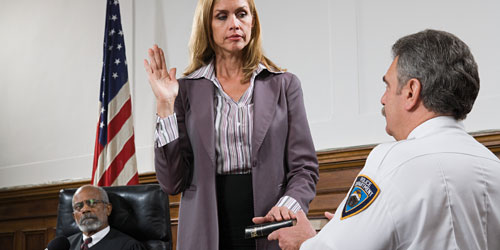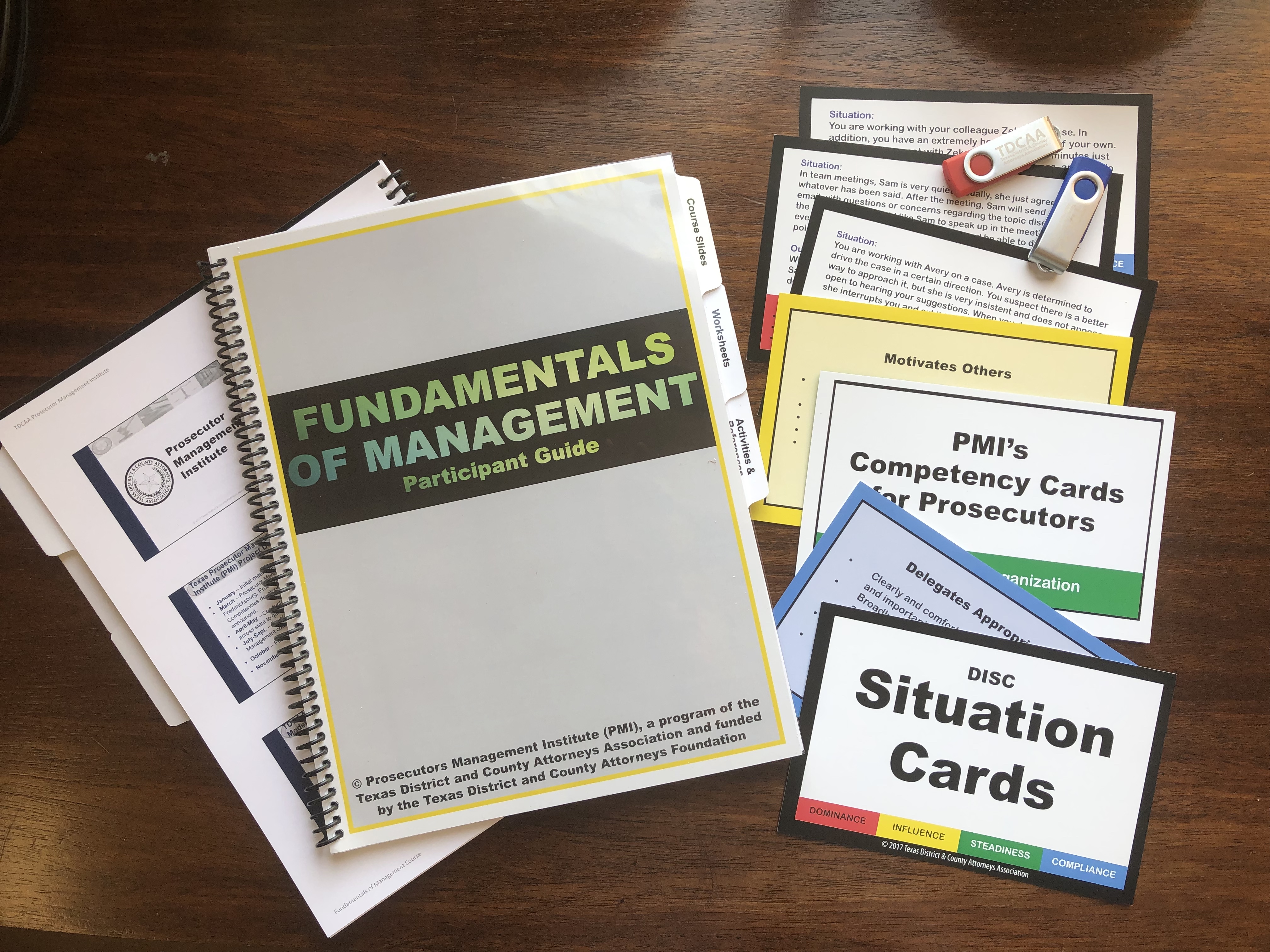Hurricane Harvey Relief Fund – give today!
In the wake of Harvey’s devastating impact on our state, the Board of the Texas District and County Attorneys Foundation has started a relief fund to assist those prosecutor office staff members who have suffered losses. 100 percent of your donation to the fund will go directly to those who have suffered hurricane and flood damage. The campaign runs until October 31, so please help out! Please click here to help those in our profession who need your help! And if you have suffered loss and are seeking assistance, click here to download the application form. If you have any questions, call Rob Kepple at 512/474-2436.
Court of Criminal Appeals of Texas
No. AP-77,069 9/20/17
Issue:
Can a prisoner be competent to be executed despite delusional beliefs or mental illness?
Holding:
Yes. A prisoner is competent to be executed if he: 1) knows he is to be executed by the State, 2) knows the reason why he is to be executed, 3) knows the execution is imminent, and 4) comprehends the “causal link” between his capitol offense and his imminent execution. Persecutory delusions about the criminal justice system and claims of innocence are not sufficient evidence of incompetency. Where there is conflicting expert testimony and evidence of malingering, the trial court did not abuse its discretion by finding the court-appointed expert more credible than the defense’s experts. Read opinion.
Dissent (Alcala, J.):
The standard for determining incompetency in the majority opinion is incomplete. The correct standard additionally requires that “a defendant’s awareness of the link between his crime and his punishment not be in a context so far removed from reality that his execution could serve no proper purpose.” The case should be remanded to the trial court to consider the appropriate standard. Read opinion.
Commentary:
The Court’s exhaustive opinion surveys a broad selection of recent opinions on competency to be executed and details the testimony of all the witnesses considered by the trial court. The opinion provides an interpretation of Article 46.05 that should help it survive scrutiny in federal court, and it may ultimately make it easier for death row inmates to establish incompetency for execution. This process will be intensely fact-bound, and the trial court’s rule as the arbiter of disputed facts and credibility is key. The prosecutor’s role is critical as well; thorough investigation revealed that this highly intelligent inmate had been studying key legal opinions about competency to be executed during the time immediately before he raised this claim, but he had never been treated for mental illness during his 14 years on death row.
No. PD-0576-16 9/20/17
Issue:
Should a jury charge for DWI include the entire definition of “intoxication” if no evidence of intoxication by drugs or other non-alcohol substances is presented during trial?
Holding:
No. The State may allege in the charge that the defendant was simply “intoxicated” without pleading a specific intoxicant. The jury charge, however, must include only the portions of the statutory definition of “intoxicated” that are supported by the evidence. An officer testified that pills were found in the defendant’s car after arrest, but without any evidence presented about the type of drug, the possible intoxicating effects, or the symptoms of intoxication by the drug. The evidence was insufficient for any rational juror to conclude that the defendant was intoxicated by “another substance.” Only the definition about intoxication by alcohol should have been included in the jury charge. Read opinion.
Concurrence (Richardson, J.):
The Court correctly distinguishes this case from Ouellete v. State, 353 S.W.3d at 868 (Tex. Crim. App. 2011). The trial court erroneously admitted testimony regarding pills found in the defendant’s car by an unqualified witness. That error was compounded by and created the jury charge error, which is the defining distinction between this case and Ouellete. Read opinion.
Dissent (Keller, P.J.):
“I would hold that the jury instruction regarding intoxication by a controlled substance was proper because the evidence was sufficient to show that appellant was under the influence of hydrocodone, an intoxicating drug. The Court contends that the evidence is insufficient to show that some of the pills possessed by appellant were hydrocodone. I disagree.” Ouellete is controlling and there was no error in the jury charge. Read opinion.
Dissent (Yeary, J.):
“It was not reversible error for the trial court to include the full definition in the abstract instructions because even those portions of the definition that do not apply to the facts proven in a particular case, and are therefore ‘superfluous,’ do not produce reversible error because they have no effect on the jury’s ability fairly and accurately to implement the commands of the application paragraph or paragraphs.” (internal citations omitted). A jury charge that includes the full definition of “intoxicated” could be erroneous in some cases but was not in this case because the State presented some evidence that the defendant had hydrocodone pills. The intoxicating effects of hydrocodone are sufficiently common knowledge that no expert testimony was needed. Read opinion.
Commentary:
A trial court should not include definitions in the jury charge that are not supported by evidence at trial. To include “drugs” in the definition of intoxication requires more than merely finding pills on the person of the defendant—rather it requires evidence of what the pills are, their effects, and whether the defendant displayed those effects.
No. PD-1180-16 9/20/17
Issue:
Can the presumption of competent representation be rebutted when the record is silent as to defense counsel’s reasons for calling witnesses who gave both positive and negative testimony?
Holding:
No. Although the witnesses called by the defense attorney gave both positive and negative testimony, it is likely that the State would have presented the same negative evidence through its own witness if it had not done so through cross-examination of the defense witnesses. Without a fully developed record about the dilemma faced by the defense attorney in calling the witnesses, it is impossible to say that the decision to do so was so unreasonable that no other attorney would make the same decision. Read opinion.
Dissent (Alcala, J.):
“Trial counsel called witnesses to the stand in the punishment phase of a sexual assault trial through whom evidence was introduced that a probated sentence was inappropriate and [the defendant] had previously sexually assaulted a child. Nothing that trial counsel could or would say to explain his performance could justify this extreme misfeasance. Despite the silent record as to counsel’s rationale for his conduct and despite the presumption that counsel’s conduct fell within the wide range of reasonable professional assistance, I would hold that, under an objective standard of reasonable performance, counsel rendered ineffective assistance of counsel.” Read opinion.
Commentary:
Most ineffective assistance of counsel claims are doomed on direct appeal because there is no record of trial counsel’s strategy. In this case, it is likely that trial counsel could not find witnesses who could give favorable testimony for the defendant without also exposing the defendant to unfavorable testimony on cross examination. This defendant will have another chance to raise this claim in habeas, but it is highly unlikely that the proverbial bus full of nuns—ignorant of his prior sex offense—will be available to testify about his good character and probation eligibility.
No. PD-1299-16 9/20/17
Issue:
Does an officer have probable cause to arrest a customer for theft from a store when the customer concealed items in her purse but had not yet exited the store?
Holding:
Yes. Under Penal Code §31.03(a), theft occurs when a person “unlawfully appropriates property with intent to deprive the owner of the property.” A customer can appropriate property by exercising control over it even if the customer has not yet left the store with the property. The officer in this case could reasonably infer that the defendant intended to deprive the store of property based on observations that some items were in the shopping cart and others were concealed in a closed purse hidden under a jacket. Although the defendant told the officer that she was not done shopping and intended to pay for the items in her purse, an officer “is generally not required to credit an accused’s innocent explanation when probable cause to arrest is otherwise apparent.” Read opinion.
Dissent (Walker, J.):
The Court’s analysis on probable cause is correct. However, that probable cause was the result of a stop conducted without reasonable suspicion. Nearly all of the State’s evidence was obtained after the stop and is inadmissible as fruit of that illegal stop. The Court of Appeal’s decision to uphold the trial court’s ruling should be affirmed. Read opinion.
Commentary:
This decision may change the way LPOs do business. But stopping thieves after they leave the store helps prove intent. That an officer can detain a person sooner may make it easier to catch a suspect, but more difficult to prove the theft case at trial. That factor, though, won’t impact this defendant’s conviction for a purse full of meth.
No. PD-1300-16 9/20/17
Issue:
Is evidence including extensive details about an officer’s training and experience required to show that an officer is capable of making reasonable inferences and deductions from the combination of otherwise innocent behavior to have reasonable suspicion to extend a traffic stop?
Holding:
No. The State must only present some evidence that the officer was reasonably capable of making rational inferences and deductions by drawing on his own experience and training. Evidence that the officer had about seven years of experience conducting drug interdiction on highways was sufficient for the trial court to conclude that the officer’s training and experience allowed him to make reasonable inferences from the fact that the defendant: 1) opened the passenger door instead of lowering the window, 2) wore heavy cologne, 3) chain smoked, 4) drove a rental car, and 5) was extremely nervous. These facts, along with the officer’s training and experience, were sufficient for the officer to have reasonable suspicion to prolong the traffic stop for a sniff by a drug-detection dog already on the scene. Read opinion.
Commentary:
Elvis is headed back for some Jailhouse Rock, probated. Here, the key is not just that the deputy said the defendant opened the door a strange way, smelled strongly of Old Spice, and chain smoked, but rather that he offered details as to why these things mattered and what his background was to show that these facts created a reasonable suspicion on his part. It would not suffice if the deputy merely testified, “based on my training and experience, dudes who chain smoke and wear too much English Leather are dope couriers.”
Nos. WR-49,980-12 to -16 9/20/17
Issue:
Does a multiple-punishment double-jeopardy claim satisfy the innocence-gateway exception to the prohibition against subsequent applications for habeas corpus?
Holding:
No. The Court of Criminal Appeals may not consider the merits of a subsequent habeas application after the final disposition of an initial application unless the applicant satisfies an exception to the statutory prohibition. The innocence-gateway exception is satisfied with a showing by a preponderance of the evidence that “but for a violation of the United States Constitution no rational juror could have found the applicant guilty beyond a reasonable doubt.” The alleged constitutional violation must occur at or before a finding of guilt. The protection against double jeopardy does not prohibit multiple jury verdicts of guilt within a single trial, so it is only upon entry of a judgment for multiple offenses —at sentencing— that a multiple-punishments violation occurs. Because the constitutional violation does not occur until after a finding of guilt, the claim does not meet the innocence-gateway exception. The claim also fails to meet the “new legal basis” exception because the principles of double-jeopardy law that form the basis of the claim were familiar principles articulated in earlier cases from the U.S. Supreme Court and the Court of Criminal Appeals. Read opinion.
Concurrence (Keasler, J.):
Double-jeopardy claims should not be cognizable in an application for habeas corpus because, in most instances, they are record claims available on appeal. Habeas corpus proceedings should not be used for claims that should have been raised on appeal. Double jeopardy is not an absolute right or prohibition, but a waivable right. A defendant’s failure to assert available double-jeopardy claims on appeal renders those claims forfeited, whether in an initial or subsequent habeas application. Read opinion.
Dissent (Newell, J.):
The constitutional error occurred when the defendant was convicted, not when he was sentenced. The State and the trial court admitted error and requested the judgment be amended accordingly; the Court should do as they ask. Denying relief in this case would serve no legitimate state interest. Read opinion.
Commentary:
This is an esoteric double jeopardy decision. The Court continues to struggle with how to handle multiple-punishment double jeopardy claims in habeas.
No. PD-0227-16 9/27/17
Issue:
May a defendant be entitled to a jury instruction on self defense on a charge of aggravated assault with a deadly weapon?
Holding:
Yes. Under Penal Code §9.04, a justified threat of force by producing a weapon that is limited to creating apprehension that deadly force will be used if necessary does not constitute the use of deadly force. This is not a separate statutory defense but is incorporated into the law of self defense. If the evidence introduced at trial triggers §9.04, the defendant is entitled to an instruction on non-deadly force self defense under Penal Code §9.31 even if the defendant is charged with using a deadly weapon. Read opinion.
Dissent (Keasler, J.):
A defendant is entitled to a self-defense instruction only when he admits to every element of the offense and offers a justification to excuse the otherwise criminal conduct. In this case, the defendant did not admit to any behavior that could reasonably be regarded as a threat to inflict bodily injury, and therefore was not entitled to a self-defense instruction. Read opinion.
Commentary:
Remember that a trial court should submit a defensive instruction if it is supported by any evidence, no matter how weak, impeached, contradicted, or unbelievable it might be. While the defendant denied pointing the gun at the victim, the charged offense required that he threaten the victim with imminent bodily injury while using or exhibiting a deadly weapon. One can threaten another with a firearm without pointing it.
No. PD-1037-16 9/27/17
Issue:
Can the discovery of drugs on a suspect after arrest for an outstanding traffic warrant supply a new basis for arrest that would justify search of the suspect’s vehicle as a search incident to arrest?
Holding:
Yes. Search of a vehicle incident to arrest is valid when it is reasonable to believe evidence relevant to the crime of arrest might be found in the vehicle. An officer may conduct a search of the vehicle incident to arrest on the basis of an offense discovered after formal arrest for a different crime as long as there is probable cause to arrest for the newly-discovered offense before the search and the search occurs close in time to the formal arrest. Read opinion.
Commentary:
This should be a positive development for law enforcement. Another warrantless search theory that might apply on these facts is the automobile exception. If the defendant has contraband on his person, that might be probable cause to believe that the car contains contraband as well and thus is subject to a warrantless search under that well-established exception to the warrant requirement.
Announcements
TDCAA is now shipping its 2017 code books. For more information or to place an order, visit https://www.tdcaa.com/publications.
TDCAA is pleased to offer these unique case summaries from the U.S. Supreme Court, the Fifth Circuit Court of Appeals, the Texas Court of Criminal Appeals, the Texas Supreme Court, the Texas Courts of Appeals and the Texas Attorney General. In addition to the basic summaries, each case will have a link to the full text opinion and will offer exclusive prosecutor commentary explaining how the case may impact you as a prosecutor. The case summaries are for the benefit of prosecutors, their staff members, and members of the law enforcement community. These summaries are NOT a source of legal advice for citizens. The commentaries expressed in these case summaries are not official statements by TDCAA and do not represent the opinions of TDCAA, its staff, or any member of the association. Please email comments, problems, or questions to Diane.Beckham@tdcaa.com.



